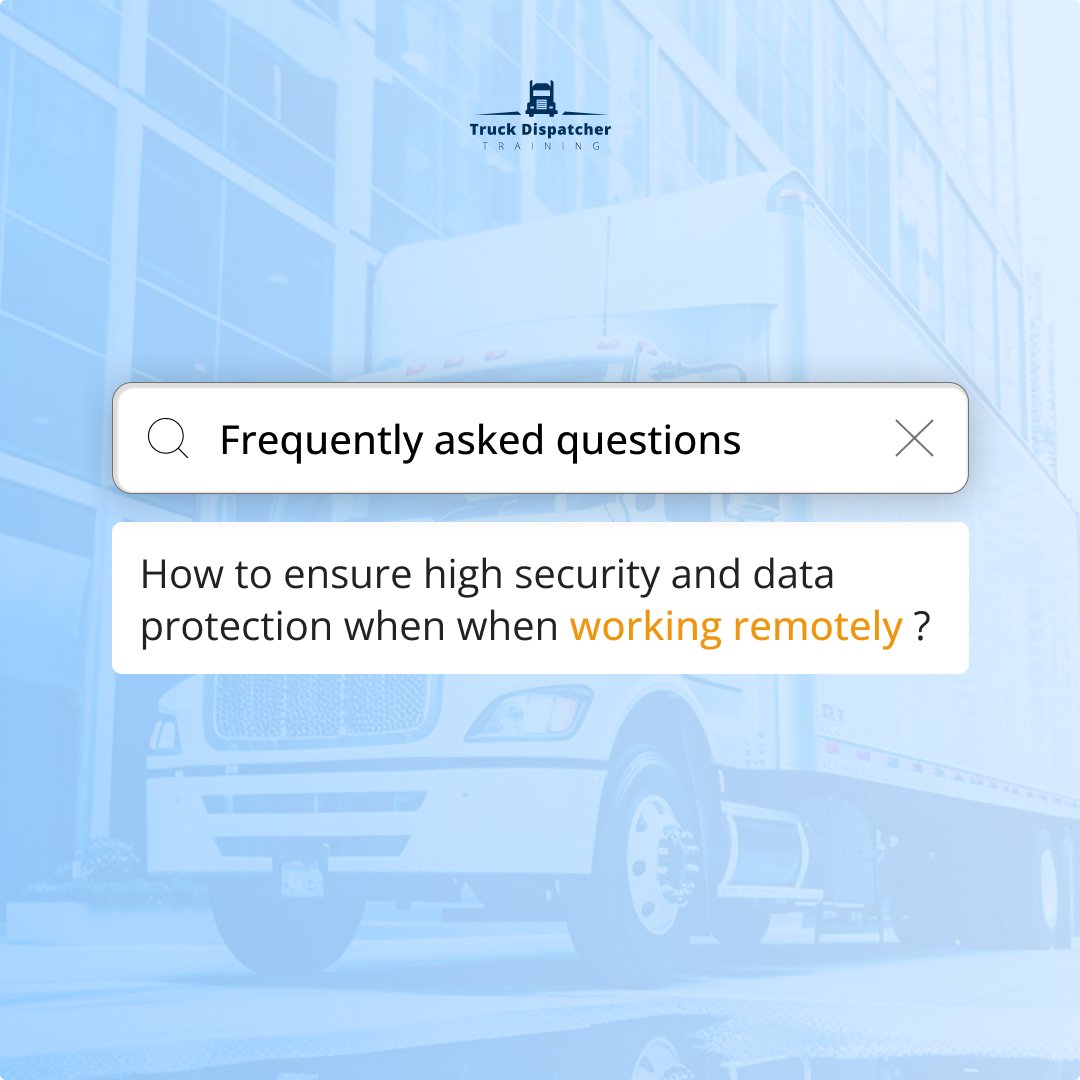
Ensuring High Security and Data Protection for Remote Dispatch Operations
In today’s interconnected world, remote dispatch operations have become a crucial aspect of various industries, allowing businesses to efficiently manage their operations from remote locations. However, this convenience comes with the challenge of ensuring the highest level of security and data protection. Safeguarding sensitive information, maintaining operational integrity, and preventing unauthorized access are paramount considerations in remote dispatch work. This article delves into the strategies and best practices to achieve robust security and data protection in remote dispatch operations.
Secure Communication Channels: The foundation of remote dispatch security lies in establishing secure communication channels. Utilizing encryption protocols, such as SSL/TLS, for data transmission ensures that information exchanged between remote operators and central systems remains confidential and protected from eavesdropping.
Multi-Factor Authentication (MFA): Implementing MFA adds an additional layer of security by requiring remote operators to provide multiple forms of identification before gaining access to the dispatch systems. This significantly reduces the risk of unauthorized access even if login credentials are compromised.
Firewalls and Intrusion Detection Systems (IDS): Deploying firewalls and IDS helps in creating barriers against malicious attacks and unauthorized network access. These systems monitor network traffic for suspicious activities and block or alert administrators in case of anomalies.
Regular Security Audits: Conduct periodic security audits to identify vulnerabilities and assess the overall security posture. These audits help in identifying potential weaknesses in the system and allow for timely corrective actions.
Data Encryption and Privacy: Encrypting sensitive data both at rest and during transit adds a strong layer of protection. Utilize strong encryption algorithms to ensure that even if data is intercepted, it remains unreadable without the decryption key.
Access Control and Role-Based Permissions: Implement strict access controls and assign role-based permissions to remote operators. This ensures that each operator only has access to the data and functionalities necessary for their specific roles, reducing the potential attack surface.
Regular Software Updates and Patch Management: Keeping all software, including operating systems and applications, up to date is essential. Software vendors release patches to fix known vulnerabilities, and failing to update in a timely manner could leave systems exposed to attacks.
Employee Training and Awareness: Educate remote operators about security best practices, the risks of phishing attacks, and the importance of maintaining data security. An informed workforce is a crucial line of defense against various forms of cyber threats.
Remote Device Management: Enforce policies for remote devices used by operators. Ensure devices are equipped with up-to-date antivirus software and secure configurations to minimize potential entry points for cybercriminals.
Incident Response Plan: Develop a comprehensive incident response plan outlining the steps to be taken in case of a security breach. This plan should include communication protocols, containment strategies, and recovery procedures.
In conclusion, achieving high security and data protection in remote dispatch operations requires a multi-faceted approach that combines technological solutions, proper policies, and employee awareness. By employing secure communication channels, implementing MFA, maintaining strict access controls, and regularly auditing and updating systems, organizations can mitigate risks and maintain the integrity of their remote dispatch operations. As the landscape of remote work continues to evolve, staying vigilant and proactive in security measures is of utmost importance.
Our latest posts

Start your own truck dispatch business with expert tips and tricks| Truck Dispatcher Training
In our new video, we dive into the exciting world of trucking logistics in the USA. Our host sits do...

Effective methods of self-development in your career
Self-development is a vital aspect of one’s career growth and overall well-being. In todayR...

Modern training methods for freight dispatchers
In the fast-paced world of modern freight transportation, dispatchers play a critical role in ensuri...